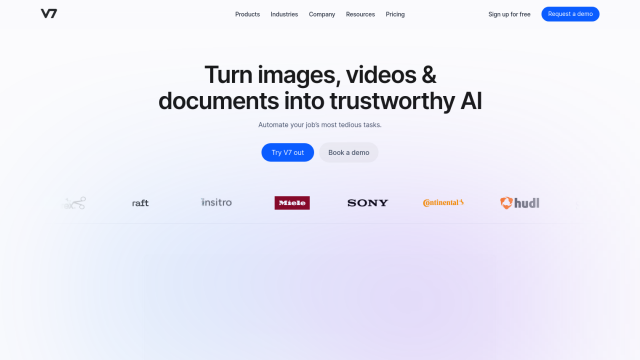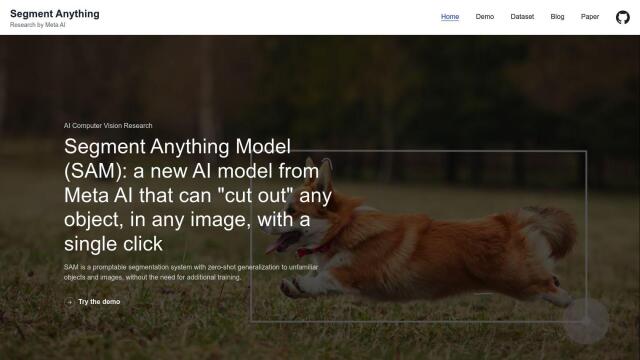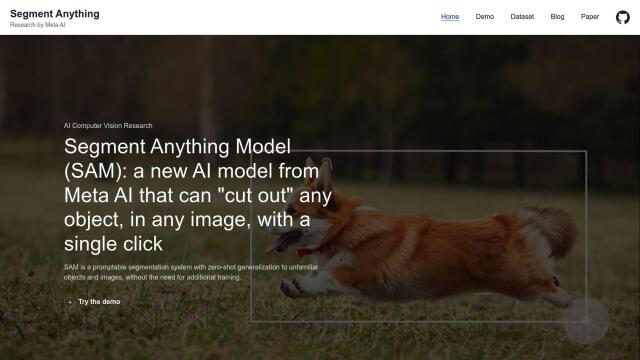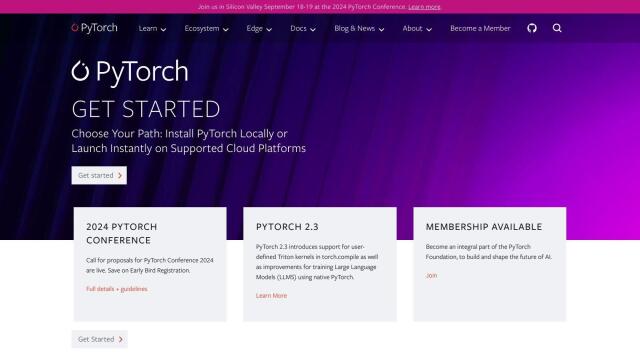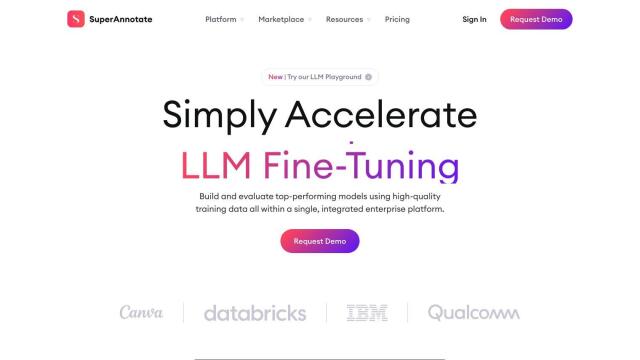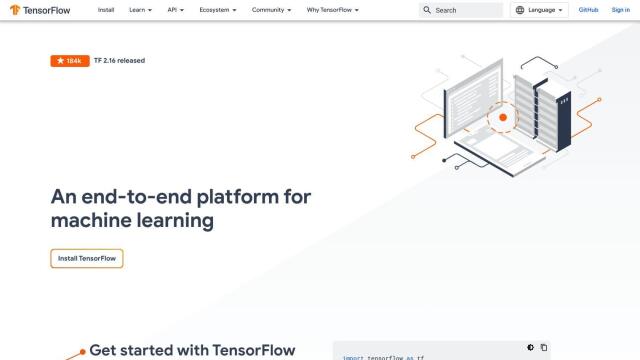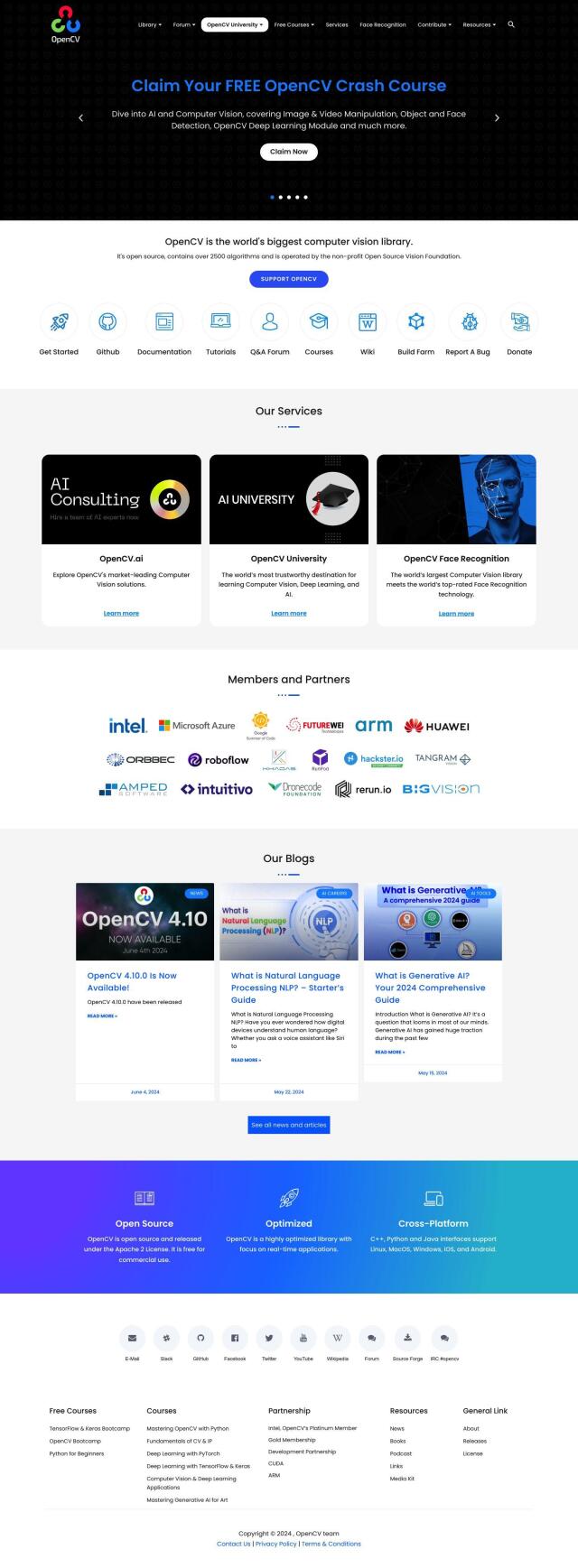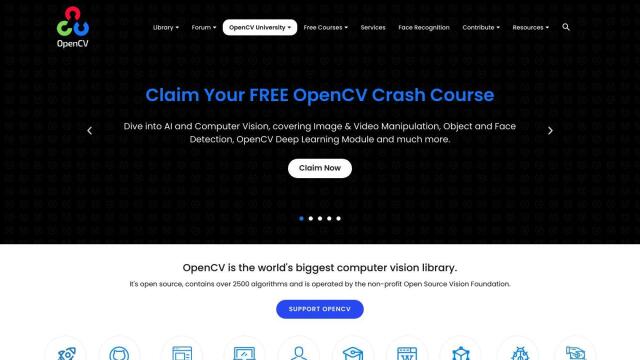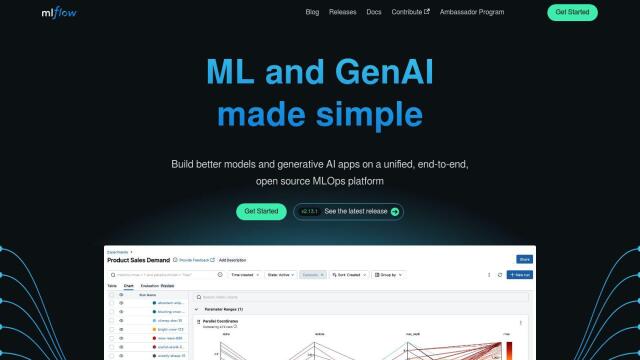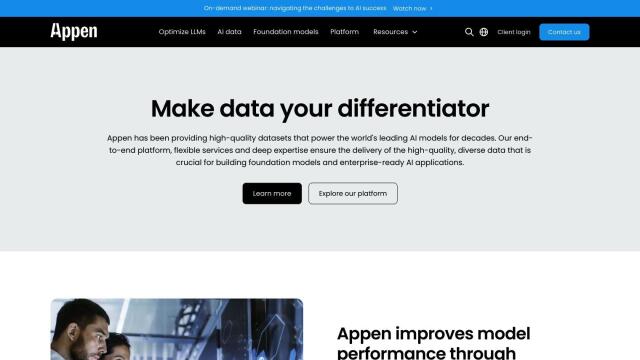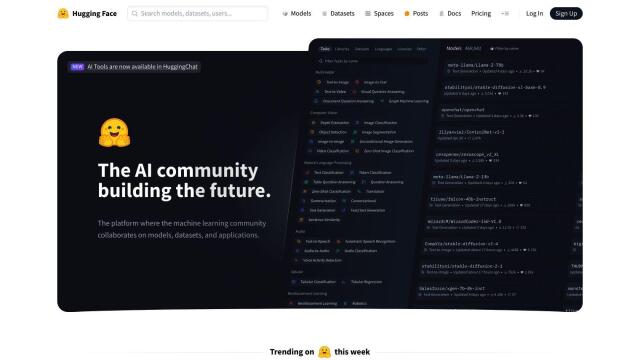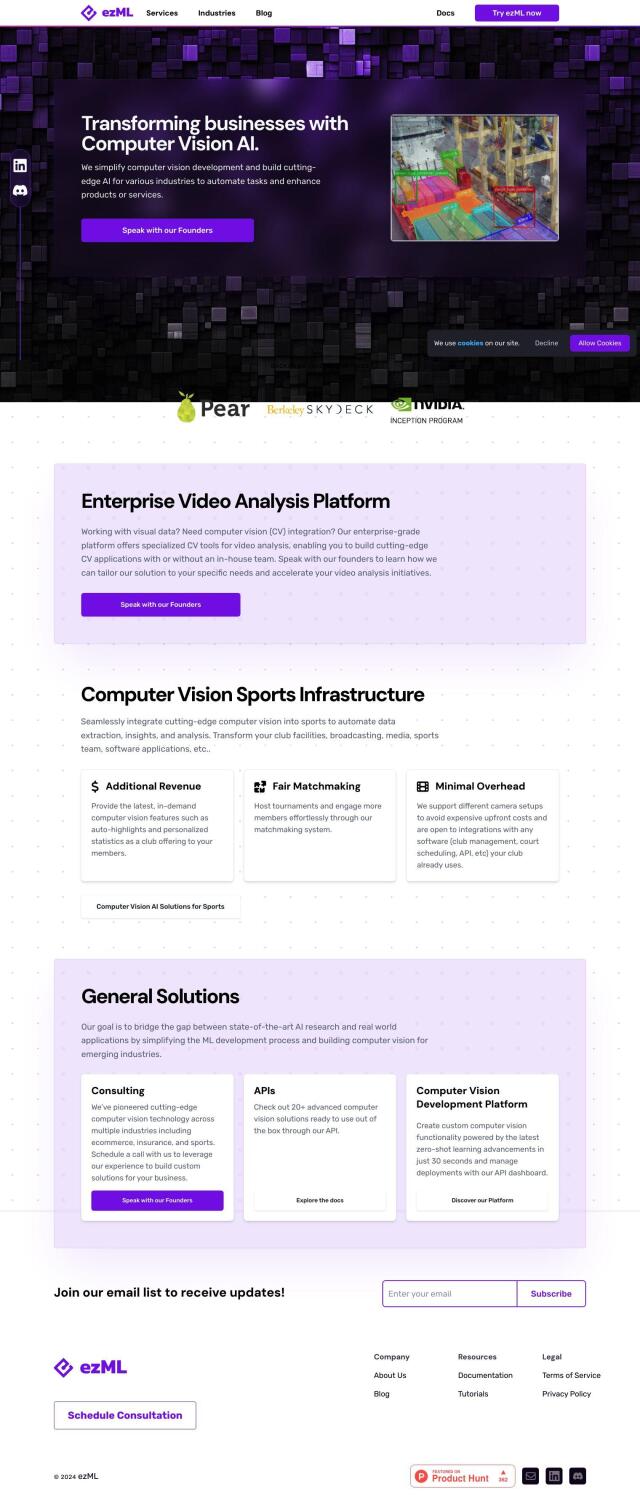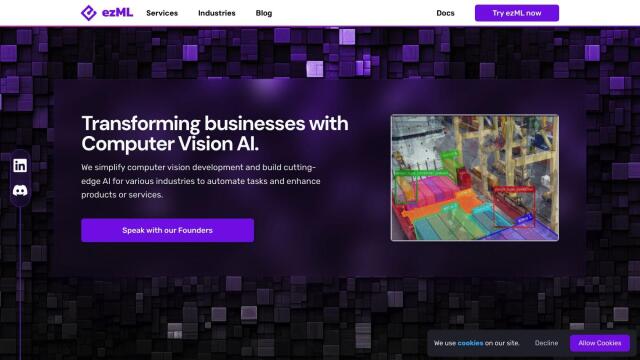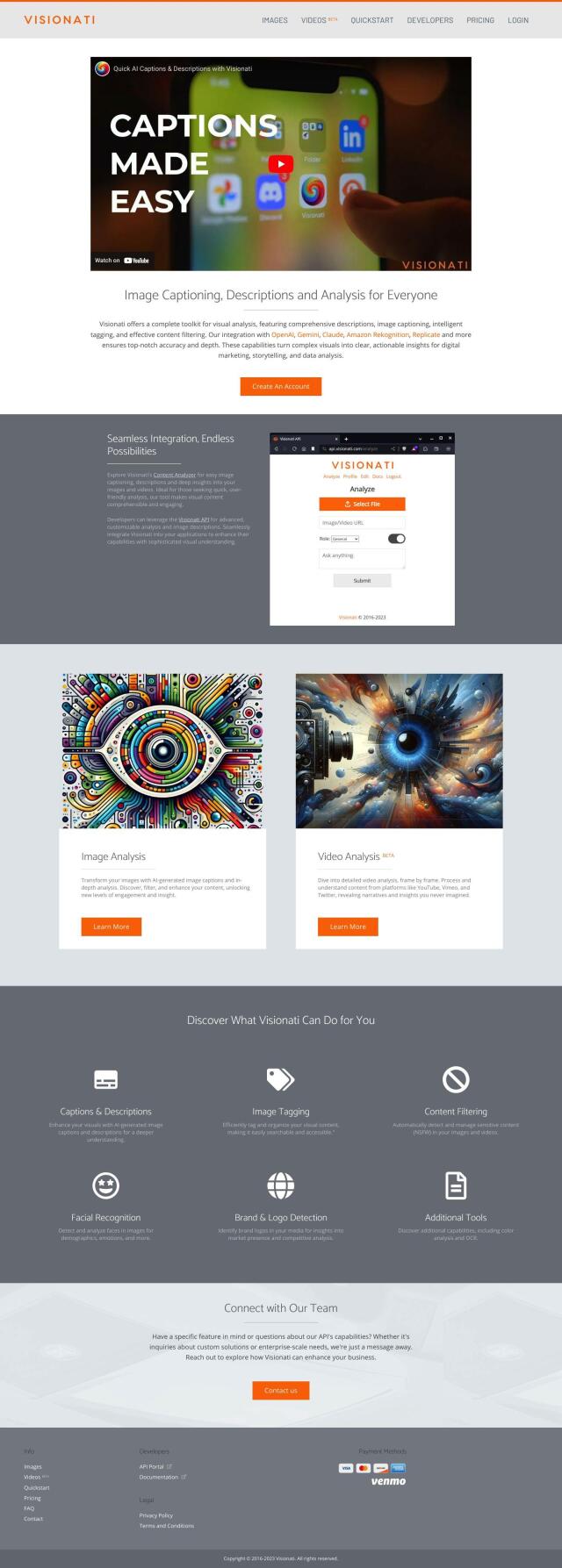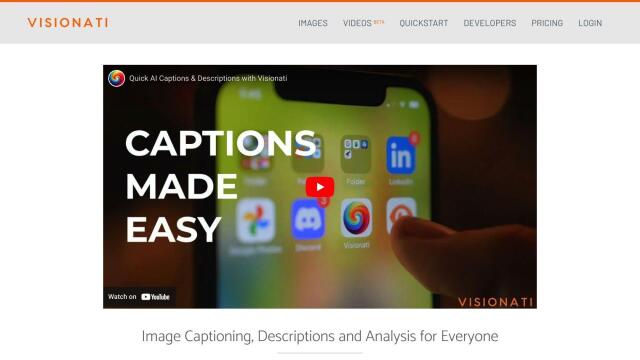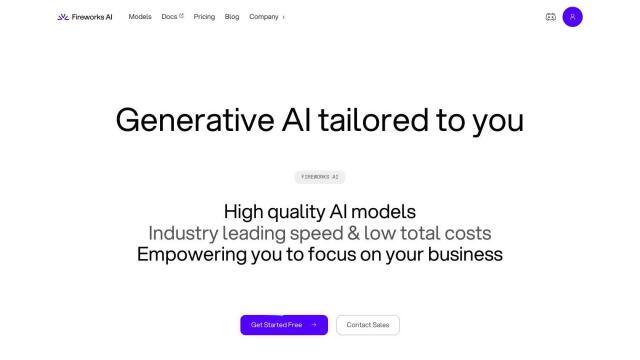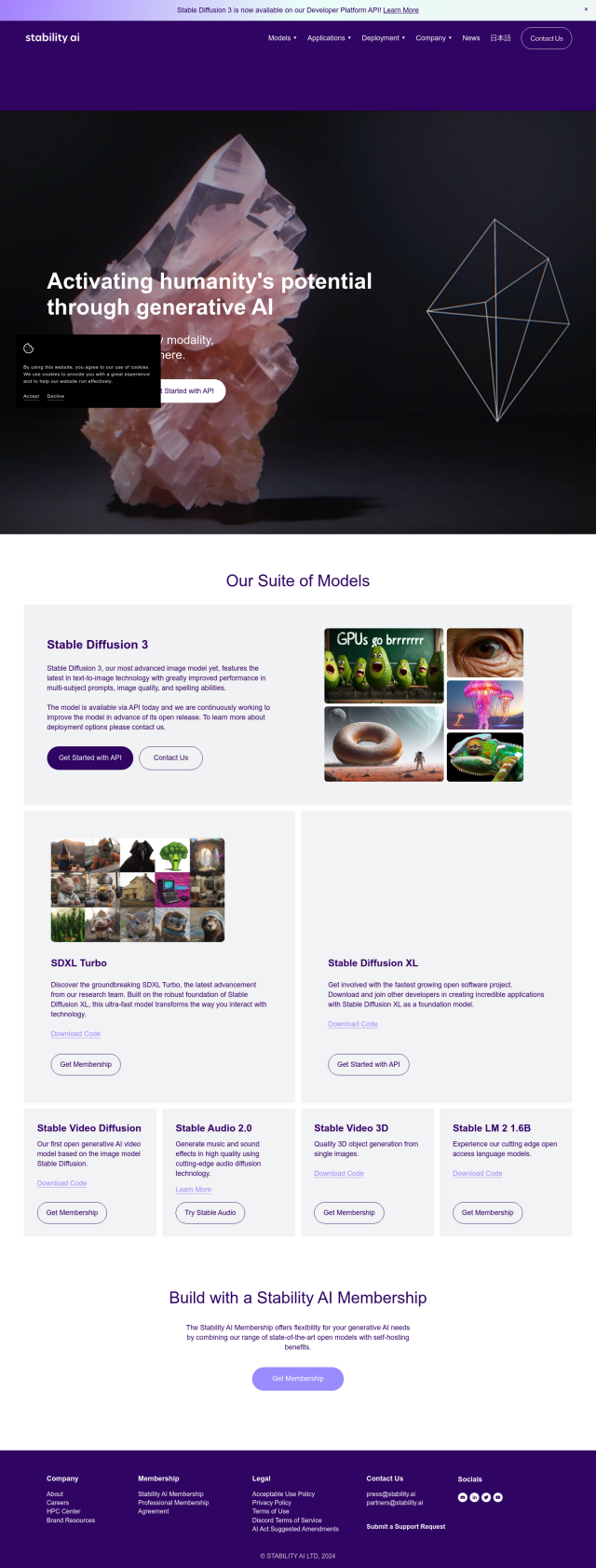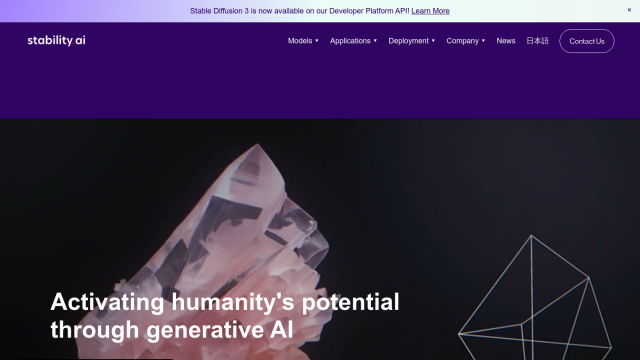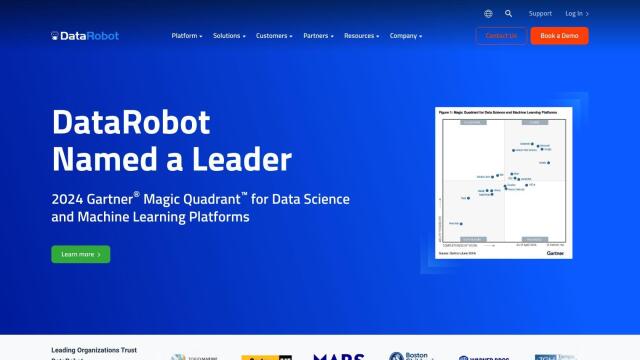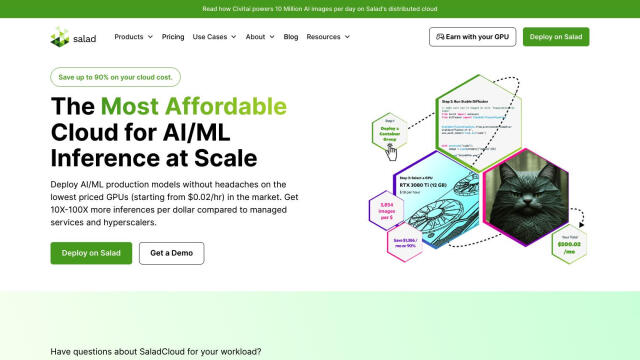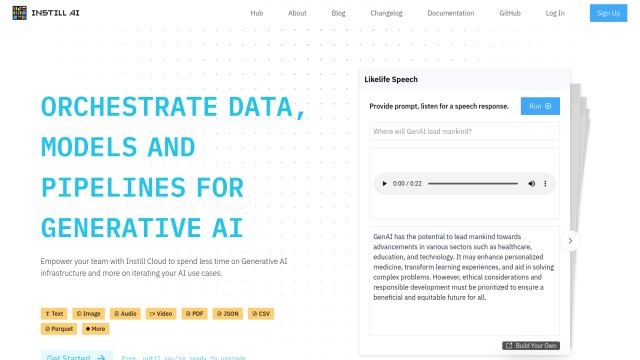Question: I'm looking for a platform that can help me build more accurate computer vision models faster, can you suggest something?

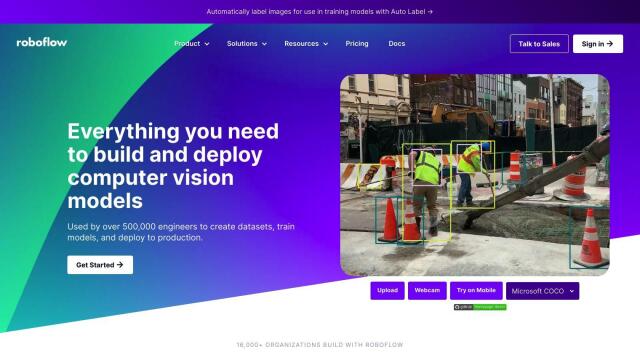
Roboflow
If you need to train computer vision models that are more accurate and do so faster, Roboflow is a good option. The service has automated annotation tools, pre-trained models and an auto-annotate API for fast labeling. It can connect to TensorFlow, PyTorch and other frameworks and deploy models to the cloud and edge. With more than 50,000 pre-trained open-source models and strong security and privacy controls, Roboflow is geared for developers and businesses trying to make computer vision work more efficiently.

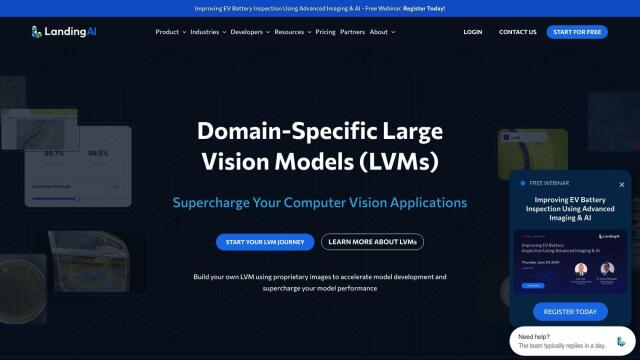
LandingLens
Another option is LandingLens, a cloud-based service that combines domain-specific Large Vision Models (LVMs) and deep learning for better model performance. It includes features like Label Book for rapid image labeling, one-click training and detailed performance reports. LandingLens can be deployed in a variety of ways and can connect to cloud and edge devices, making it a good option for many industries.

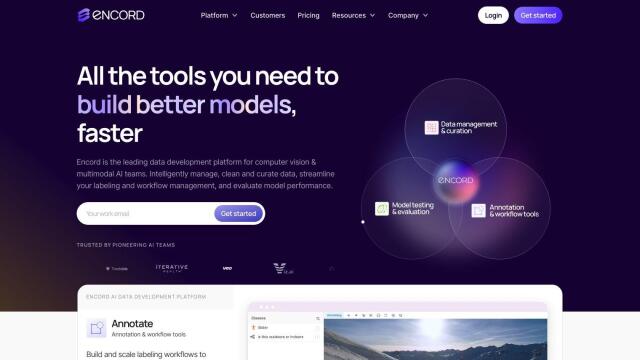
Encord
Encord is a mature service for building predictive and generative computer vision models. It has tools for ingesting, cleaning and automatically labeling data, as well as for evaluating model performance. Encord's architecture is designed to be secure and compliant, and it can connect to storage and MLOps tools for a smooth workflow, speeding up AI development lifecycles.
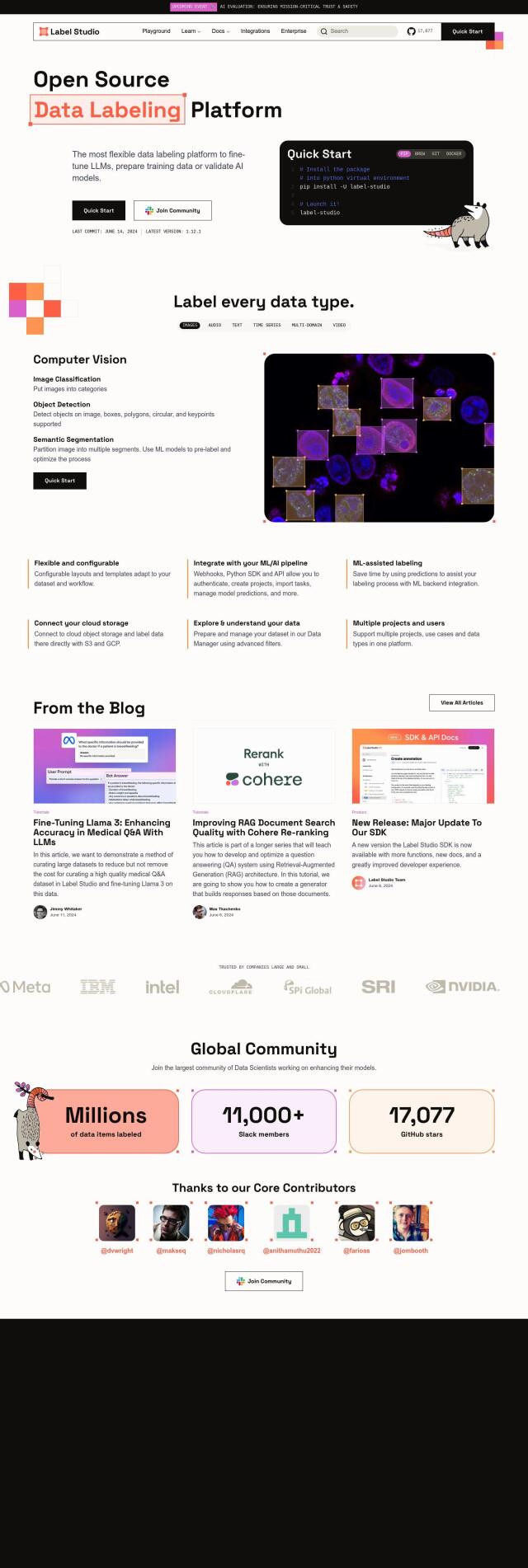
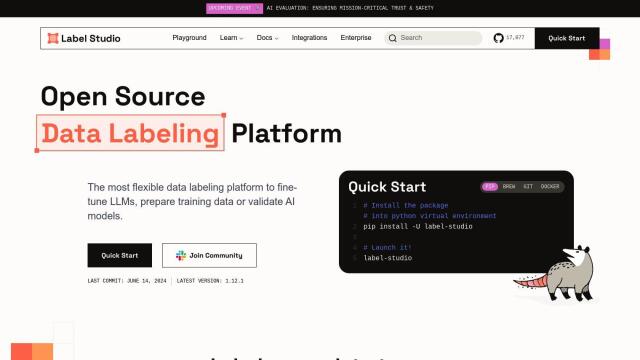
Label Studio
If you're looking for a flexible data labeling tool, Label Studio can handle a variety of data types, including images, audio, text, time series and video. It's got customizable layouts, ML-assisted labeling and integration with cloud storage systems. Label Studio is open-source and free, so data scientists and small and large businesses can use it.

